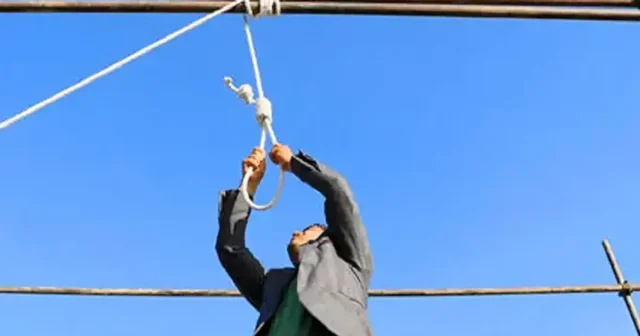Iranian authorities have executed 67 people in one month, bringing the total number of executions in the country to 246 since the start of 2024, according to human rights organization Hengaw.
More than half of those executed were from ethnic minorities, underscoring concerns about systematic discrimination by Iranian authorities and the utilization of capital punishment as a means of oppression.
In its monthly report, Hengaw stated that out of the dozens executed, 25 were Kurdish, 15 were Turkish, 5 were Baluch, and 3 were Afghan.
Underscoring the alarming rate of executions among Baluch minorities in Iran, the human rights group Haalvsh disclosed on Sunday that 171 Baluch citizens were executed in various prisons across the country between March 2023 and March 2024.
The latest figures follow an Amnesty International report showing that Iran led a surge in recorded executions in 2023, with at least 853 people executed. Amnesty notes these figures represent only the official count, suggesting the actual number could be much higher.
The report also highlighted a significant disparity: although the Baluchi minority constitutes about 5% of Iran’s population, they accounted for 20% of the executions in 2023.
Among the prisoners executed in May was Ramin Saadat, a juvenile offender. His execution has raised significant concerns about Iran’s compliance with international treaties it has ratified, such as the International Covenant on Civil and Political Rights and the Convention on the Rights of the Child. Despite its proclaimed commitment to protecting the rights of minors, the Iranian authorities’ continued execution of juvenile offenders highlights a clear disregard for these obligations.
Also among those executed last month, were at least four women: Fariba Mohammadzahi in Kerman prison, Razieh in Vakil Abad prison in Mashhad, Parveen Mousavi in Urmia prison, and Fateme Abdullahpour in Neishabur prison.
Drug-related charges accounted for 38 of the executions, constituting more than half of all cases. Additionally, 26 individuals were executed for premeditated murder, representing a significant portion of the total. Furthermore, two individuals were executed for their religious beliefs.
Iran’s judicial process is often criticized for its lack of independence, transparency, and fairness, with prisoners frequently denied legal due process and, in many cases, convicted on fabricated charges.
The United Nations and various human rights organizations have repeatedly called on Iran to halt executions.
Despite these appeals, Amnesty’s report revealed that in 2023, Iran accounted for 74% of the 1,153 executions recorded globally.






















